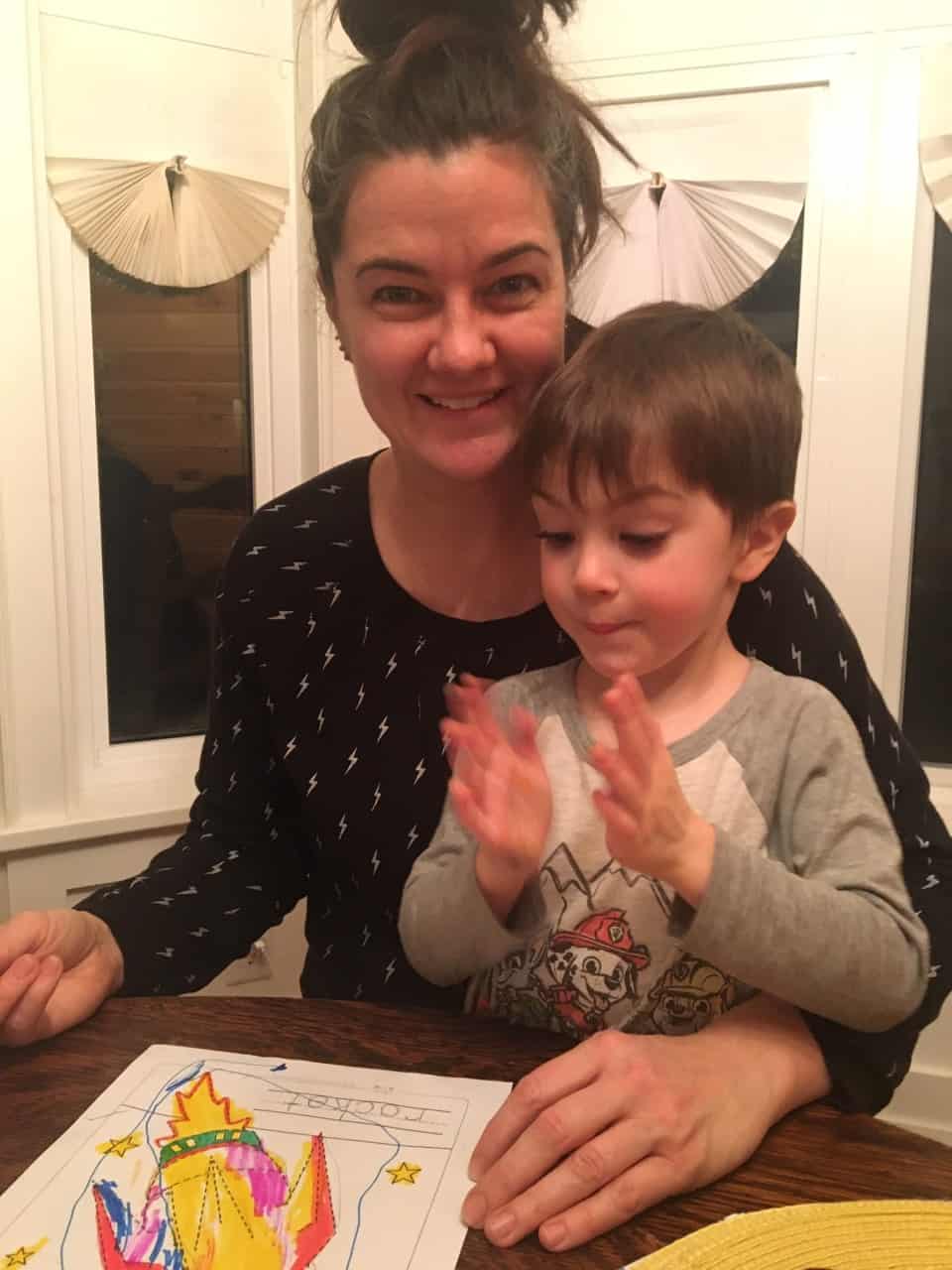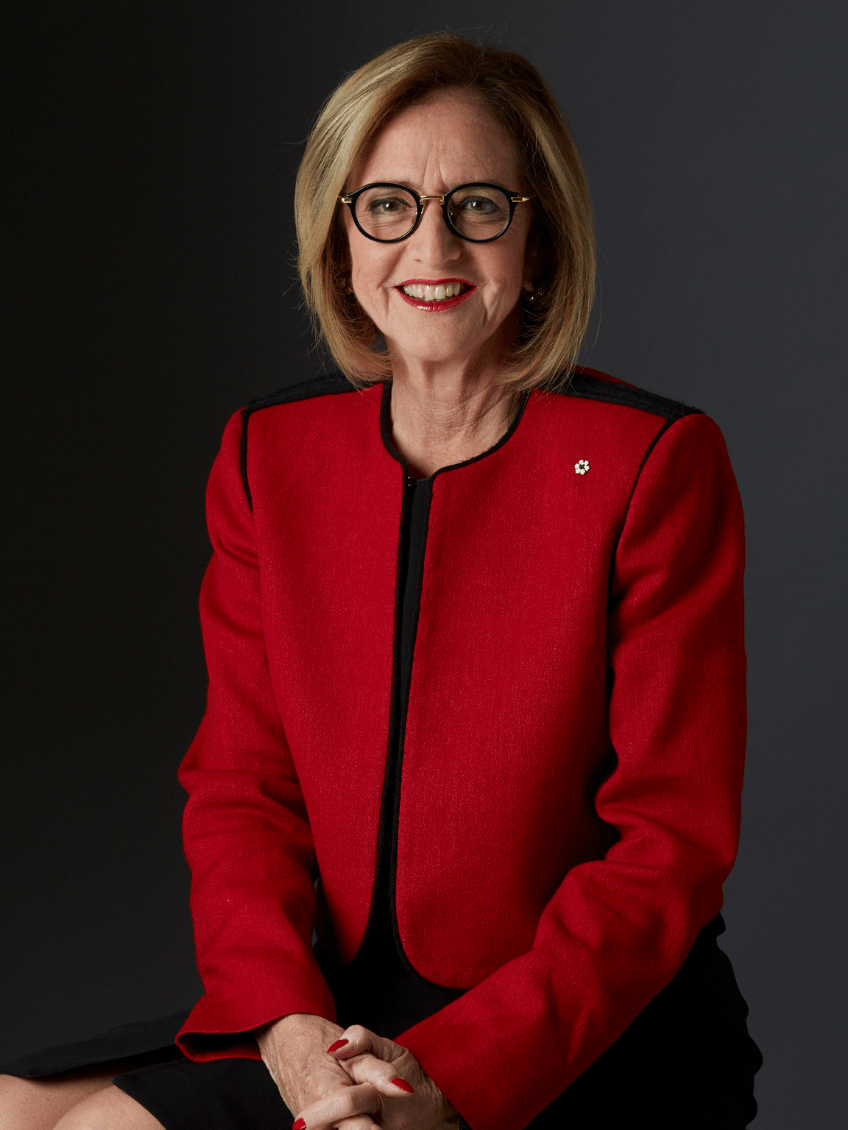30 YEARS TOWARD
GENDER JUSTICE
Impact Report 2019-2021
“Until all of us have made it, none of us have made it.”
The Canadian Women’s Foundation: 30 Years of Impact
2021 marks the 30th anniversary of the launch of the Canadian Women’s Foundation by trailblazing women with the vision of a gender-equal Canada. They began the journey. Today, you continue to push their efforts forward at this most critical time.
The Foundation is a national leader in the movement for gender equality. Through funding, research, advocacy, and knowledge-sharing, we work to achieve systemic change. We support women, girls, and gender-diverse people to move out of violence, out of poverty, and into confidence and leadership. Since 1991, our generous donors and partners have contributed more than $150 million to fund over 2,500 life-transforming programs throughout Canada.
Meet Our Founding Feminist Trailblazers








Our World Has Changed Radically Over the Past Year and a Half.
 All of us have been touched by the impacts of gender injustice. And the issues interconnected to it reveal themselves every day, from climate emergencies, systemic racism, and poverty to colonization, health disparities, and a lack of access to social supports.
All of us have been touched by the impacts of gender injustice. And the issues interconnected to it reveal themselves every day, from climate emergencies, systemic racism, and poverty to colonization, health disparities, and a lack of access to social supports.
There is no turning back from here.
This is good in some ways. People like you clamour for community care and systemic change to benefit diverse women, girls, and Two Spirit, trans, and non-binary people. You don’t want to only treat symptoms of our regional and national problems. You want systemic shifts to lift entire families and communities throughout the country.
Still, 2020 and 2021 have given me pause. Thirty years of gender equality gains are at stake in Canada. Inequities continue to undercut human dignity and quality of life in stunning ways. Where we go from here is up to us. Are we up to the challenge?
When we work together, we are. This tireless community is a force to be reckoned with. Your generosity and passion over the last year and a half has been nothing short of remarkable. You’ve proven that we can rise up in moments of crisis for both short-term relief and lasting change.
I take heart in the reality that, 30 years ago, the Canadian Women’s Foundation was founded by women who believed we can overcome immense challenges. Today, their conviction continues to ring true in you.
Thank you for pushing for gender justice, not in spite of the times, but because of them. You know it’s the key to unlocking a better future for us all.
Of course, there’s no vaccine for injustice. And what we do today reverberates for years to come. Your efforts to build gender justice in 2022 and beyond are more important than ever.
With tireless gratitude,
Paulette Senior
President and CEO
Canadian Women’s Foundation
Tireless Action, Now and Into the Future
1. Continued grantmaking to grassroots partners to run transformative programming in every province and territory
2. Thousands more women, girls, and gender-diverse people moving out of violence, out of poverty, and into confidence and leadership
3. Refreshed strategic priorities and plans for the Foundation to meet Canada’s contemporary gender justice concerns
4. A strengthened and growing community of donors, partners, and supporters with more opportunities to take action
The Ongoing Journey for Decolonization and Ending Systemic Racism
The work of the Canadian Women’s Foundation and the organizations we support takes place on traditional First Nations, Métis, and Inuit territories. We are grateful for the opportunity to meet and work on this land. However, we recognize that land acknowledgments are not enough. We need to pursue truth, reconciliation, decolonization, and allyship in an ongoing effort to make right with all our relations.
- The Foundation is committed to supporting Indigenous-led efforts for systemic change and justice through community partnerships, grantmaking, and policy change initiatives.
- We have signed onto the The Philanthropic Community’s Declaration of Action, developed by The Circle on Philanthropy and Aboriginal Peoples in Canada.
- The calls to action and justice from the Truth and Reconciliation Commission and the National Inquiry into Missing and Murdered Indigenous Women and Girls inform our plans and work.
- We are implementing an organization-wide, multi-year operational plan to address systemic racism. It includes a specific focus on anti-Black and anti-Indigenous racism as well as measures to evaluate our progress.
Thank You From the Board of Directors
 On behalf of the Board of Directors, I would like to extend my heartfelt thanks for all the ways you have helped women, girls, and gender-diverse people move out of poverty, out of violence, and into confidence and leadership.
On behalf of the Board of Directors, I would like to extend my heartfelt thanks for all the ways you have helped women, girls, and gender-diverse people move out of poverty, out of violence, and into confidence and leadership.
More than ever, we must focus on what really matters: taking care of each other.
We’ve been confronted with a crisis that forced us to rethink our priorities and consider what is undervalued. The longstanding impacts of discrimination and social barriers on the most vulnerable women and communities could not be clearer.
I am thankful for the ways you’ve acted on the reality that advancing gender justice means pursuing a wide range of systemic changes that make Canada better for everyone.
You propel the movement.
Thank you for enabling the Foundation to play its unique role as Canada’s public foundation for gender equality and a national thought-leader for gender justice.
Angela Johnson
Chair of the Board of Directors
Canadian Women’s Foundation
In Memory of Sarah Robinson (1986-2021)
 Sarah Robinson was a member of the Fort Nelson and Saulteau First Nations in Treaty 8 territory. She was a proud stepmother and auntie to many, a strong advocate for Indigenous women, and an educator. Sarah was a member of our Board for a short time. We wish we had more time to get to know this inspiring woman. Our deepest sympathies extend to her loved ones and communities. Read this CBC News profile of Sarah and watch her 2017 WalrusTalks presentation, Indigenous Women and the Story of Canada.
Sarah Robinson was a member of the Fort Nelson and Saulteau First Nations in Treaty 8 territory. She was a proud stepmother and auntie to many, a strong advocate for Indigenous women, and an educator. Sarah was a member of our Board for a short time. We wish we had more time to get to know this inspiring woman. Our deepest sympathies extend to her loved ones and communities. Read this CBC News profile of Sarah and watch her 2017 WalrusTalks presentation, Indigenous Women and the Story of Canada.
Thank You, Canadian Women’s Foundation Board of Directors
We are indebted to our brilliant Board Members, who channel their expertise from diverse sectors, industries, regions, and communities into our work. We also thank our many volunteer committee members, who steer our grantmaking forward.
Current Board Members
- Angela Johnson, Board Chair, former Vice-Chair; Director, Internal Communications and Strategic Relations, Nova Scotia Government
- Laurie Clarke, Board Vice-Chair; Fundraising Strategist and Consultant
- Dr. Ramona Lumpkin, Board Vice-Chair; President Emerita, Mount Saint Vincent University
- Lisa O’Connor, Board Treasurer; Vice President, Finance, Superior Plus
- Laurie Young, Board Secretary; Consultant/Instructor
- Dr. Dawn Lavell-Harvard, Director, First Peoples House, Trent University
- Jas Kaur Hothi, CPA, CA, Partner, National Enterprise Risk Leader, Ernst & Young LLP
Ernst & Young LLP
- Sarah Mariani, Girls on Boards Participant, G(irls)20; Senior Project Associate, Digital Projects at MaRS Discovery District
- Peggy Moss, Author, Writer
- Meenu Sikand, Executive Lead, EDI, Holland Bloorview Kids Rehabilitation Hospital
- Olivia Sobey, Legal Counsel, Empire Company Limited/Sobeys Inc.
- Sandy Vander Ziel, Partner, Dunphy Best Blocksom LLP
Former Board Members
- Dr. Kristin Blakely, Former Board Chair and Co-Chair; Senior Fellow, Glendon School of Public and International Affairs, Course Director, Department of Sociology, Glendon College, York University
- Jody Johnson, Former Board Co-Chair and Vice-Chair; Associate General Counsel, TC Energy
- Paula J. Smith, CPA, CA, Former Board Secretary; Partner, National Director, EY Entrepreneur of the Year, Ernst & Young LLP
- Hafsah Asadullah, Girls on Boards Participant, G(irls)20; University Student
- Marilyn Roycroft, Former Board Secretary; Retired/Consultant
- Danielle Bisnar, Lawyer and Partner, Cavalluzzo LLP
- Jennifer Flanagan, President and CEO, Actua
- Tammy Harkey, President, Native Education College
- Shawna Paris-Hoyte, QC, Lawyer, Social Worker, Dalhousie University
- Sarah Robinson, Principal and Founder, Rainwatch Consulting
You’re Pushing for a Gendered Recovery to Help Everyone
When the pandemic hit Canada in March 2020, its disproportionate impact on marginalized women and communities was clear almost immediately. Women-serving and gender justice grantees of the Canadian Women’s Foundation were overwhelmed by the influx of community needs. Their services were more vital than ever, but they struggled to keep its operations going.
Pandemic Struggles: In the Words of Grantee Partners
“Communities that were struggling before are just facing an abundance of issues now … My real concern is that we’re sitting on an explosion of people who are going to be in need, following the pandemic.”
“Anxiety levels in the shelter are very, very high, for residents and staff.”
“We need funds and resources to be able to pivot … And in a time when risk of harms has increased, we need to up those protective factors, not take them away.”
“Rural families may have to prioritize financial and work-from-home Internet use ahead of accessing services and making educational and social connections … Feeling isolated, trapped, and alone are all concerns we’ve heard locally.”
Donors and Partners Took Swift and Generous Action
Our supporters dug deep for the Tireless Together Fund in April 2020. In a matter of months, you generously donated over $600,000 to help gender equality programs continue to help women, girls, and gender-diverse people move out of violence, out of poverty, and into confidence and leadership.
Grantee partners throughout Canada expressed deep gratitude. As Julia Grady, Executive Director of 10C in Guelph, Ontario so aptly shared, your support filled a sudden financial gap and, “most importantly, gives us COURAGE to continue and support the work and social change.”
And with the partnership of the Government of Canada, emergency grants were distributed all over Canada to ensure local service providers could deal with the influx of need and continue to support women, girls, and gender-diverse people to move out of violence and poverty and into confidence and leadership in the pandemic.
Between April 2020 and August 2021, we distributed over $43 million in emergency response grants to gender justice programs and organizations.
Organizations that received this critical support include SOFIA House in Saskatchewan, HOPE Outreach in British Columbia, and South Asian Women’s Centre in Ontario, to name a few. And it made a huge impact. The Calgary Immigrant Women’s Association, for example, experienced a 50-per-cent increase in calls during the pandemic. With the help of its grant, the Association increased its people power to help meet the need, offer more counselling and support services, and shorten their waiting list.
Gendered Impacts of the Pandemic in Canada
As Canada grapples with the COVID-19 pandemic, many want to return to “normal” as quickly as possible.
But “normal” is deeply flawed, especially for women, girls, and Two Spirit, trans, and non-binary people.
The pandemic exposes hard truths.
It’s normal that the people getting harmed the most are those already facing the worst inequities, including women, vulnerable seniors, people living on low incomes, Black, Indigenous, and racialized communities, people with disabilities, and people who identify as 2SLGBTQI+, and people who are immigrants, migrants, and/or undocumented. It’s “normal” for people who experience the worst problems to have the least say in solving them. It’s “normal” to view equality as “nice to have” – but not an essential feature of a healthy society. It’s “normal” to give the most vulnerable people in society the
lowest priority for care.
It’s time to reset normal.
You Fuel Change
To make it through the pandemic, rebuild, and set Canada up for gender justice, we need robust support services to address critical issues and adapt to community needs.
Beyond direct program funding, we also work with our network of grassroots grantee organizations to evaluate and improve programming, share best practices, and develop priorities for systemic change and advocacy.
The Foundation’s grant programs focus on three important gender issues: ending gender-based violence, economic development for women and gender-diverse people, and girls’ empowerment. Our fourth area, inclusive leadership development, is incorporated into all granting areas.
Out of Violence
You support programs to prevent and intervene in situations of gender-based violence. They provide services such as emergency shelter, housing support, help to rebuild life after abuse, sexual assault and exploitation crisis support, child witness to violence programs, and healthy relationship education for teens. They do the complex work necessary to break the cycle of violence in families and communities.
- Teen Healthy Relationship grants enable young people of all genders to learn about dating violence, sexual assault, and how to build safe, healthy, and equal relationships
- Rebuilding Lives grants help survivors find safe housing, sexual violence support, counselling, legal support, and help children recover
Program Spotlight
Out of Poverty
Your support enables Economic Development programs to reduce gendered poverty and build economic strength for those who need it most. These programs:
- provide “wrap-around support” to help participants break through barriers to access programs in the first place.
- help participants break into well-paying fields where women are traditionally underrepresented: construction, carpentry, electrical, auto mechanics, and technology.
- teach entrepreneurship
- help women learn employment skills and gain work experience in “social purpose” businesses operated by community-based non-profit organizations.
And through the Foundation’s Investment Readiness Program, made possible by the Government of Canada’s Social Innovation/Social Finance Strategy, women-led, women-serving organizations have been given funding and tools to join the social innovation and social finance ecosystem in Canada. It is proving important for the sustainability of gender equality organizations. In all, 41 organizations have been funded, nearly 70 per cent of which are led by the very communities they serve. A full 97 per cent reported an increase in knowledge about social finance, updated their strategic plans to include social enterprise strategies, and created stronger business models.
Program Spotlight
Northern Strategy Update
Bolstering gender justice efforts in the North begins with stronger community relationships and better understanding of the uniqueness of the region.
In partnership with MakeWay Foundation, we have been honoured to support the launch of a Northern Women and Girls Advisory Committee with representatives from Yukon, Northwest Territories, Nunavut, Nunavik, and Nunatsiavut. This dynamic committee provides leadership in Northern grant-making and has already opened doors so the Foundation can support five excellent initiatives.
Into Confidence
The Girls’ Fund supports programs that give girls and gender-diverse youth tools to develop into confident, resilient people, right when they need this support the most. It builds participants’ skills, provides them with mentorship opportunities, and deepens their self-esteem in safe spaces just for them.
Girls’ Fund programs offer:
- STEM education
- sports and physical activity
- media literacy
- Indigenous culture and connection
- mentorship and leadership
Program Spotlight
You Keep Gender Justice in the Spotlight
You enable “the long view” to understand trends, respond to evidence, and push for best practices to end gender injustice.
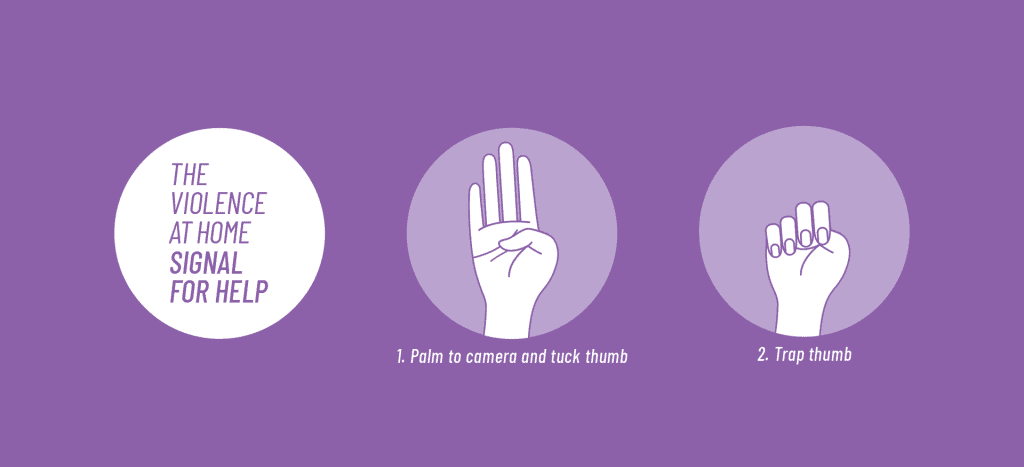
The Violence at Home Signal for Help
The Signal for Help is a one-handed gesture you can make on a video call to communicate you need someone to safely check in with you.
Since we launched it in 2020, in response to increased risk of gender-based violence, the Signal has gone viral. The video PSA has been viewed on YouTube over one million times, and news about the Signal has been shared through hundreds of media stories. A 2020 poll found that about one in three people in Canada know of or have seen or used the Signal. And it has been shared in 44 countries including Japan, Italy, England, the US, Brazil, and France. Most recently, it been recognized by The One Club’s One Show, Cannes Lions International Festival of Creativity, and the 2021 Marketing Awards.
There’s more to come to make sure everyone in Canada supports those facing violence and does their part to be champions to end gender-based violence. Learn more about the Signal and how to respond to it.
FOREVER TIRELESS: Celebrating 30 Years of Impact for Gender Justice
Your Tireless Impact
September 2019-March 2021
*Program numbers include multi-year grantees, annual grantees, and grantees receiving emergency funds in the pandemic. For descriptions of multi-year and annual grantee programs, visit canadianwomen.org/program
**Lives impacted estimates are based on projections of direct program participants, people indirectly impacted by the program, and people reached by the organization. The estimate of lives impacted in Quebec is lower than other regions because the province distributed its own federal emergency funding.
Financials
This impact report covers two fiscal periods, the 12-month fiscal year from September, 1, 2019 to Aug. 31, 2020, and the seven-month stub year from September 1, 2020 to March 31, 2021.
The Foundation changed its fiscal year end to better align with ongoing projects and activities. Going forward, our fiscal years will run from April 1 to March 31.
2019-2020
Total Revenues Received: $19,457,620
Total Expenses: $20,468,031
Total Amount Invested in Communities: $18,351,828
2020-2021
Total Revenues Received: $30,205,118
Total Expenses: $28,421,617
Total Amount Invested in Communities: $27,641,031
Thank you, Donors and Corporate Partners!
“Since its inception in 1991, the Foundation has been a powerful and important voice for equal rights and opportunities for women and girls. I am confident the Canadian Women’s Foundation will continue to be a leading voice in the advancement of women and children as we restructure in a postpandemic world.”
“Our hope is that our project can inspire other women and girls to achieve things beyond their wildest imaginations.”
“… I feel as though, in some small way, I’m part of the solution. When things feel out of control (as they do at the moment!), it’s comforting to feel like your support and your choices matter.”
“The Canadian Women’s Foundation is an incredible force for change. Your support will make the world better for up-and-coming feminists and changemakers like Iver.”
“We know that, with the right support, women and girls can change their lives, their communities, and the world.”
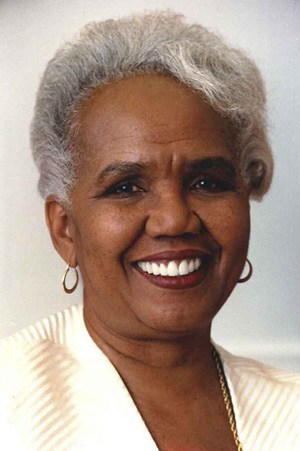
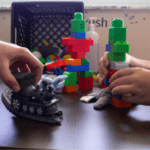 Children staying at women’s shelters with their mothers or caregivers need specialized supports. At the Welcome Centre Shelter for Women & Families, funding from the Foundation has helped provide individual counselling and educational assessments for children. “The ability for them to have that one-on-one support to help during their shelter experience – combined with COVID and the struggles with their children – helped us see women through the pandemic without as many issues as we would have otherwise,” says Lady Laforet, Executive Director.
Children staying at women’s shelters with their mothers or caregivers need specialized supports. At the Welcome Centre Shelter for Women & Families, funding from the Foundation has helped provide individual counselling and educational assessments for children. “The ability for them to have that one-on-one support to help during their shelter experience – combined with COVID and the struggles with their children – helped us see women through the pandemic without as many issues as we would have otherwise,” says Lady Laforet, Executive Director. This is a group for youth who identify as nonbinary, gender non-conforming, gender diverse and are Black, Indigenous, or people of colour. For program coordinator Dinaly Tran (right), it’s been rewarding to see connections and rapport build among participants as they’ve met online during the pandemic.
This is a group for youth who identify as nonbinary, gender non-conforming, gender diverse and are Black, Indigenous, or people of colour. For program coordinator Dinaly Tran (right), it’s been rewarding to see connections and rapport build among participants as they’ve met online during the pandemic. Participant Shetiephaa Williams (right) says she was nervous about delivering her session on gender-based violence, but proud of how it turned out, and wants to pursue peer education in the future. “Everything was on point – the people, the program itself, it made me feel safe to talk about anything and listen and not judge. I definitely recommend it!”
Participant Shetiephaa Williams (right) says she was nervous about delivering her session on gender-based violence, but proud of how it turned out, and wants to pursue peer education in the future. “Everything was on point – the people, the program itself, it made me feel safe to talk about anything and listen and not judge. I definitely recommend it!”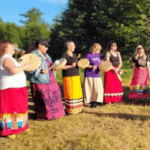 “The opportunity to work in Indigenous communities, and foster social innovation to support sustainable, cultural programming is an amazing opportunity and one that we do not take for granted.” – Candace Simon, Program Director
“The opportunity to work in Indigenous communities, and foster social innovation to support sustainable, cultural programming is an amazing opportunity and one that we do not take for granted.” – Candace Simon, Program Director “Thanks to the program’s laptop lending program, I also came out with a working computer. As an Indigenous mother, I’m passionate about making Canada a better place for my son, my family, my community, and future generations.”
“Thanks to the program’s laptop lending program, I also came out with a working computer. As an Indigenous mother, I’m passionate about making Canada a better place for my son, my family, my community, and future generations.”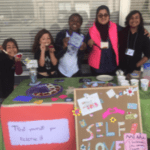 This program creates spaces for girls to build a sense of community, explore issues in their lives, and foster activism and leadership. “It’s been rewarding to see the girls build a safe community for themselves where they can turn to each other,” says Era Rana, Girls Leadership Coordinator. “Maybe someone was getting bullied, or tired of school, or just tired of being isolated, but for those two hours in the program, they are part of something positive.”
This program creates spaces for girls to build a sense of community, explore issues in their lives, and foster activism and leadership. “It’s been rewarding to see the girls build a safe community for themselves where they can turn to each other,” says Era Rana, Girls Leadership Coordinator. “Maybe someone was getting bullied, or tired of school, or just tired of being isolated, but for those two hours in the program, they are part of something positive.” Through her teens, the RISE Empowerment program has been there for Sabine Duknic (right). She joined as a participant at about 12, and now works with the program as a summer student at 17.
Through her teens, the RISE Empowerment program has been there for Sabine Duknic (right). She joined as a participant at about 12, and now works with the program as a summer student at 17.


